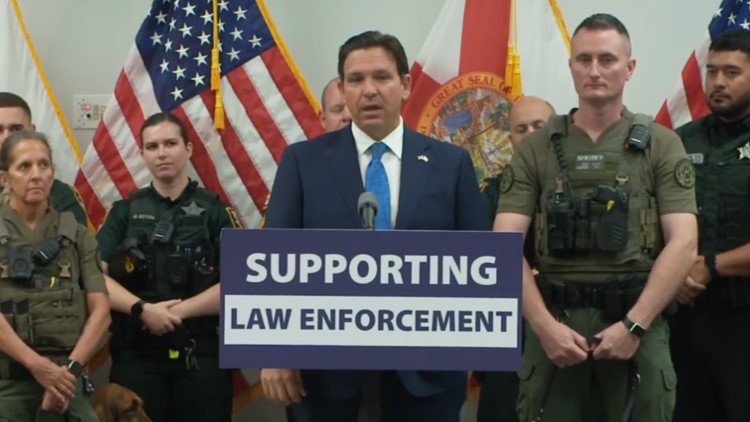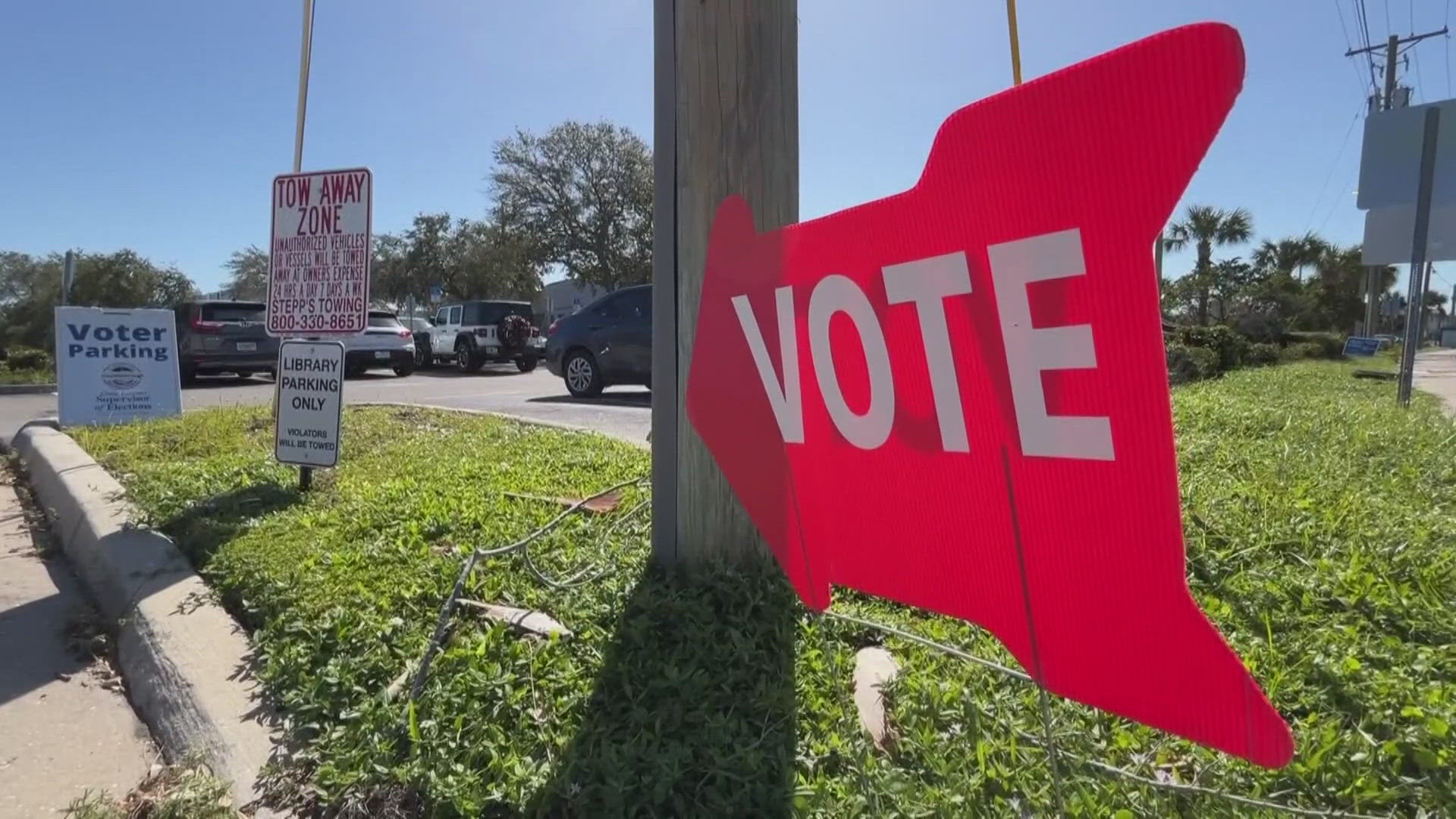ST. AUGUSTINE, Fla. — Gov. Ron DeSantis signed bills increasing protections for law enforcement on Friday morning.
DeSantis signed SB 184: Impeding, Threatening or Harassing First Responders and HB 601: Law Enforcement and Correctional Officers in St. Augustine at a press conference.
He also announced caregivers of retired police K-9s will have their veterinary bills completely covered.
Here are the details about the new laws:
SB 184: Impeding, Threatening or Harassing First Responders
It prohibits a person, who previously received a warning to not approach a first responder who is doing their job, from violating that warning.
The bill, sponsored by Sen. Bryan Avila, R-Hialeah Gardens, increases the distance a person has to stay back from 14 to 25 feet. It also doesn’t mention how peacefully recording first responders doing their jobs is not harassment.
It will be a second-degree misdemeanor charge for people who approach after receiving a warning.
It passed 85-27 in the House and 39-1 in the Senate.
Sen. Bobby Powell, D-West Palm Beach, voted against it and said 25 feet is too far away to see anything, especially if someone blocked a person’s view.
It will go into effect Jan. 1.
HB 601: Law Enforcement and Correctional Officers
This piece of legislation, sponsored by Rep. Wyman Duggan, R-Jacksonville, authorizes county sheriffs to establish civilian oversight boards to review policies and procedures of the sheriff’s office. It gives the state control of investigating complaints against law enforcement and correctional officers and takes authority away from local officials.
Local governments will not be able to pass ordinances or rules related to investigating complaints about misconduct by law enforcement and correctional officers. It also bans rules about civilian oversight of agencies in investigating misconduct complaints.
It passed unanimously in the Senate, 81-28 in the House and will go into effect July 1.
“These bills will continue to prove that we are a law-and-order state and protect our first responders,” DeSantis said.
The governor also signed 10 bills on Thursday:
HB 201: Emergency Refills of Insulin
If a pharmacist can’t obtain authorization from a prescriber for an insulin refill for a patient, the pharmacist can provide an emergency refill. Pharmacists can only do this three nonconsecutive times each year.
It was passed unanimously in both chambers and will take effect on July 1.
HB 937: Purple Alert
Local law enforcement agencies will develop their own policies to determine if a Purple Alert should be activated. This type of alert is used when an adult with mental or cognitive disabilities is missing.
Agencies must contact media outlets, inform all on-duty officers and inform other agencies within their county if the alert is issued.
It will go into effect July 1.
HB 433: Employment Regulation
A controversial DeSantis signed into law is a bill banning local government from requiring its contractors to pay higher wages or take extra steps to protect workers from heat exposure.
The bill bars local governments from establishing policies not otherwise required under state or federal law. Local governments cannot require contractors to have work schedules letting workers know in advance when they will have to work.
The bill went back and forth between chambers, and it passed 24-15 in the Senate and 74-36 in the House.
Rep. Robin Bartleman, D-Weston, opposed the bill and questioned how predictive scheduling saves taxpayer dollars.
“It’s allowing businesses to be able to do business,” said Rep. Tiffany Esposito, R-Fort Myers.
Esposito, who sponsored the bill, said if a company can’t run their business and staff if they have schedule changes and can’t make those changes within a two-week timeframe.
Rep. Michele K. Rayner, D-St. Petersburg, brought up her concerns for counties like Miami-Dade where workers are paid $22 an hour on county contracts versus the state minimum wage of $12.
“Is there anywhere in this bill that would allow local communities to address that specific gap that they will be facing?” she said. Rayner, who voted against the bill, also questioned how the bill would safeguard against adverse working standings, like the Florida heat.
In response, Esposito said if a worker doesn’t feel his or her employer isn’t offering enough, the worker can find another job.
It will go into effect July 1.
HB 135: Voter Registration Applications
There have been cases when voters renew their registration, his or her party affiliation gets dropped and they are listed as having “no party affiliation.” This would be an issue during the primaries because Florida is a closed primary election state, which means only voters who are registered members of political parties can vote for party candidates.
This bill states a party affiliation can only change if the voter confirms the change in writing.
It will go into effect Jan. 1 after passing unanimously in Congress.



